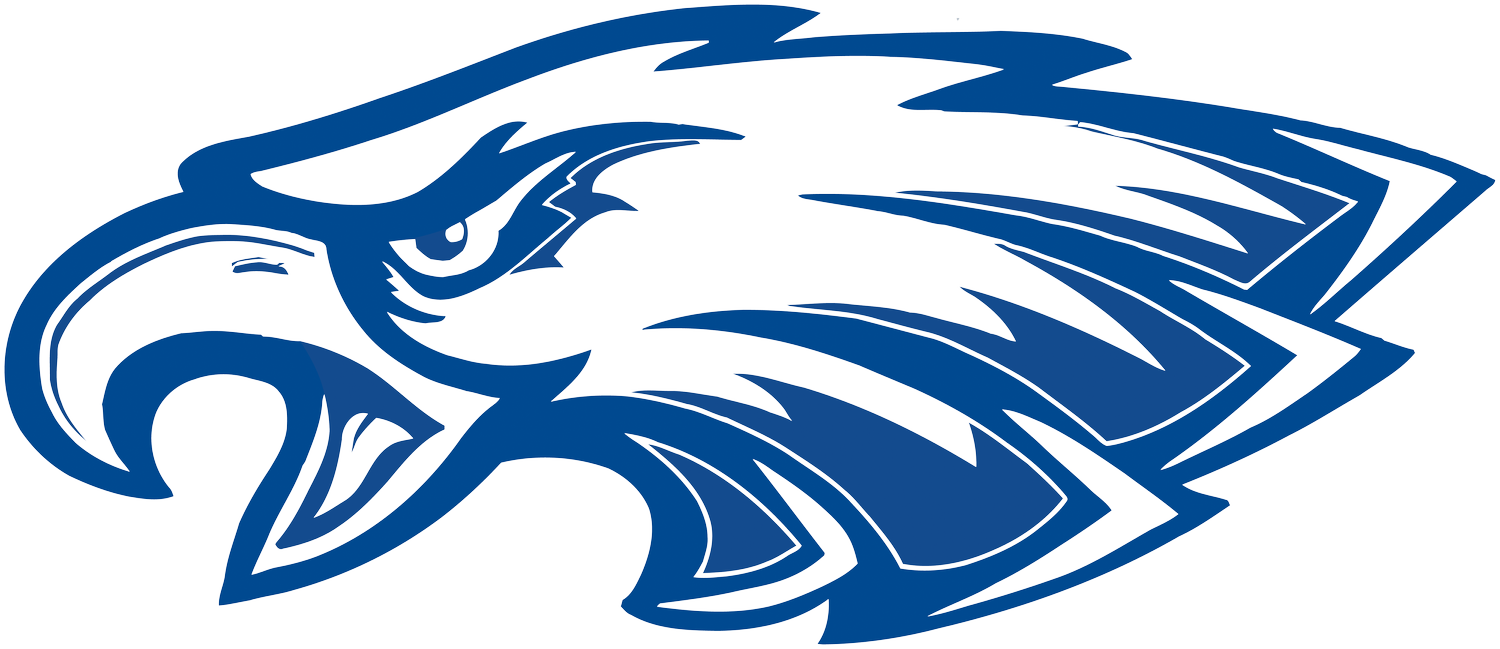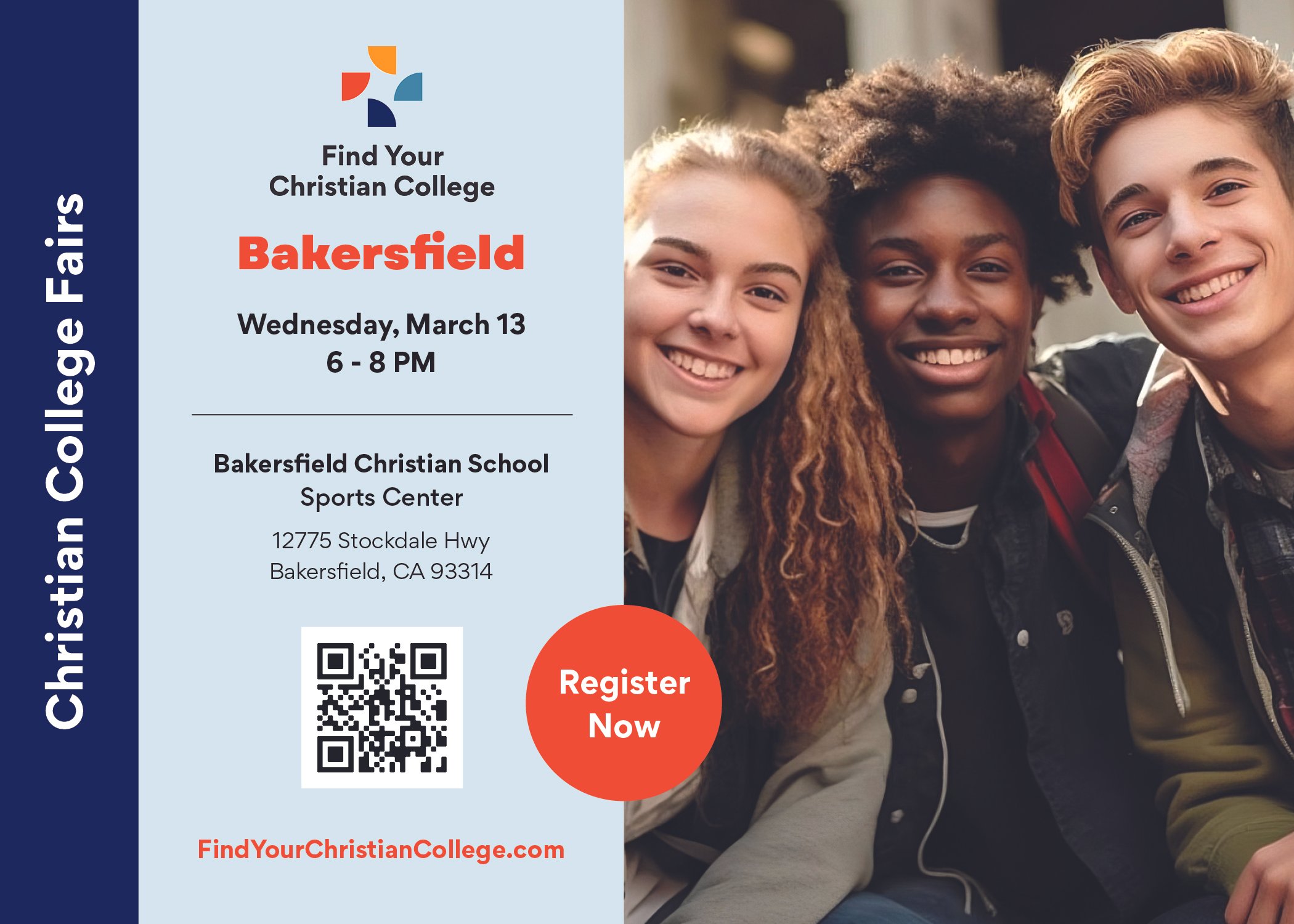COLLEGE COUNSELING
The Guidance Department of Bakersfield Christian High School
At BCHS
We aim to identify the needs, interests, aptitudes, and goals of all BCHS students and to provide each student with academic, college/career, and personal/social guidance throughout his/her four years at BCHS. We assist students in gaining the self-knowledge, information, and insight necessary to make mature decisions, to plan their academic and career futures realistically and to solve interpersonal problems effectively.
UPCOMING EVENTS:
SAT & PSAT Test Preparation
Though BCHS students already consistently score higher on SAT and ACT tests than both the state and national averages, BCHS has implemented a unique test preparation program to raise our students' scores even higher.
During the spring semester of the junior year, each BCHS student will receive a 20-day intensive training within the school day to prepare them for the SAT.
Sophomores and juniors who have exhibited a high propensity in standardized testing will receive additional preparation for the PSAT. The PSAT is the entryway into the National Merit Scholarship Program, as well as a strong predictor for SAT success.
“For whatever was written in former days was written for our instruction, that through endurance and through the encouragement of the Scriptures we might have hope.”
— ROMANS 15:4
useful websites
-
Student Page includes information on testing and college applications: www.collegeboard.com
Naviance : naviance.com
-
Application used by over 400 universities: www.commonapp.org
Application for the CSU system: www2.calstate.edu/apply
Application for the UC system: www.admission.universityofcalifornia.edu
-
US News college ranking: www.usnews.com
Princeton Review’s top schools: www.princetonreview.com
Colleges of distinction: www.collegesofdistinction.com
WUE: Consortium of 15 Western states with reciprocal tuition rates: www.wiche.edu
-
Register for the SAT, practice tests and studying strategies: www.collegeboard.com
ACT student page with practice questions and answers: www.ACTstudent.org
Military ASVAB test and career information and planning: www.asvabprogram.com
-
Federal student financial aid site: www.fafsa.ed.gov
Information on Section 529 savings plans: www.savingforcollege.com
Scholarships and financial aid information: www.goingmerry.com
Information on Cal grants: www.calgrants.org
Savings, loans, calculators: www.finaid.org
-
-
NCAA eligibility information: www. eligibilitycenter.org
Website for National Association of Intercollegiate Athletics: www.playnaia.org
Junior college athletics information: www.njcaa.org
-
Select schools by major: www.usnews.com
Major to career converter: www.monster.com
Assists in selection of college major: www.mymajors.com
-
O*NET The Occupational Information Network: www.onetcenter.org
Career information and planning: www.careercruising.com
The Keirsey temperament sorter: www.keirsey.com
-
Military Career Information, ROTC information: www.todaysmilitary.com
Information on attending a United States Service Academy: https://kevinmccarthy.house.gov/services
Senior Dates & Deadlines
-
• Finalize your schedule, making certain that you have all the classes you need to graduate and to meet college entrance requirements.
• Begin to finalize your college list and enter your list into Naviance.
• Apply for CSF if you qualified for 2nd semester of junior year. See the calendar for specific deadline. Turn in to the Registrar.
-
• Register for the fall and winter SAT and/or ACT.
• Pay attention to the college visit announcements at BCHS.
• Write your college essay.
• Finalize your college list and update list in Naviance.
• Complete the Senior Recommendation Questionnaire in Naviance.
• Give teachers two weeks' notice to write letters of recommendation. Provide them with a resume and stamped envelope addressed to the school if the recommendation cannot be submitted electronically.
• Begin filing applications.
• UC applications may be filed from October 1-November 30 at www.universityofcalifornia.edu/admissions.
• Request transcripts from the Registrar through Naviance.
• CSU applications may be filed from October 1 to November 30.
• Register with the NCAA Clearinghouse if you plan to play sports in college.
• Research and apply for scholarships at www.goingmerry.com, www.fastweb.com or www.cappex.com
• October 1 is the first day to file the FAFSA, which is required to receive any form of college financial aid.
-
• Observe all college application deadlines.
• Be sure all applications are sent in before Christmas Break. Many colleges have a January 1 deadline. You will not be able to reach teachers or counselors during Christmas Break if you have forgotten to request letters of recommendation or transcripts.
• Check university policy regarding test scores. Review with your counselor to determine if scores should be sent.
• Test scores must be sent from the testing agency to the university. BCHS cannot send test scores!
• To send SAT scores: collegeboard.org
• To send ACT scores: actstudent.org
• Continue to research and apply for scholarships.
-
• If applying to private schools, find out whether they require the CSS PROFILE supplemental financial aid form. Fees are required. Go to www.collegeboard.org.
• Submit your CSF paperwork. The deadline is typically the last Friday in January. See the calendar for specific deadline. Turn in to the Registrar.
• Rank your finalized list of colleges.
-
• Receive college admission notifications.
• Discuss your options with your family, teachers and counselor.
• Compare your financial aid packages: studentaid.gov/complete-aid-process/comparing-aid-offers.
• If you are waitlisted, decide on your options.
• Return all paperwork on time, paying special attention to the May 1 deadline by which many colleges must have your decision and a deposit.
• Continue to apply for private and independent scholarships. Check Naviance daily as we update our local scholarship list frequently.
• Notify other schools that you will not be attending.
-
• Deadline for responding to colleges for admission, financial aid and housing is May 1.
• Request that final transcript be sent to the college you will be attending.
• Notify your counselor of which school you have chosen to attend and any awards or scholarships you have received. Please enter this information in your Naviance account.
College Planning
-
Freshman year is important in establishing strong study habits and study skills. Colleges may not ask for freshman year grades, but remember, for overall GPA, freshman year counts. Guidance starts with freshman scheduling conferences and concludes with course selection and advisory at the end of the year. Freshmen are introduced to Naviance, our online counseling and guidance program, during the 2nd semester. Through Naviance, freshmen take an inventory to better understand their unique learning style. They also begin to research careers and colleges through Naviance. Freshmen are encouraged to stop by the counseling office and discuss any academic issues or just to chat so that the counselor can get to know, and thus better guide, the students.
-
Grades count for college admission this year. Work hard and smart. The PSAT, (a preliminary SAT, one of two national college entrance exams), is optional for sophomores. Semester two, if PSAT is taken, sophomores can review their results with their counselors. Individual students (and parents) may make appointments with their counselor to discuss their scores. Sophomores should continue to feel free to stop by and see their counselor to discuss school, dreams, goals and life. Second semester also includes a visit by the counselors to the sophomore classrooms to introduce the California Scholarship Federation (CSF), and course selection and advisement. Sophomores are also encouraged to take a personality profile assessment through Naviance to better match students with careers and colleges.
-
Junior year is considered by many students to be the toughest. Maintaining a strong GPA in rigorous coursework may be challenging but is important. All juniors take the PSAT semester one. Counselors visit the classroom for college admissions advice and information. Juniors may apply for both California Scholarship Federation (CSF) and National Honor Society first semester. Semester two, students meet in groups to go over PSAT test results and then may meet individually with the counselor to discuss specific scores. Junior year PSAT scores are used for eligibility in the National Merit Scholarship Competition. During the spring semester, each junior will receive 20 days of intensive SAT preparation to equip them for the SAT. This training will take place during the school day. Preparation for the college application and process is a particular advising focus for Juniors during the second semester and includes an evening presentation for parents. During this year, many students choose to meet with the counselor to discuss future goals and college choices. Students will also be given advice in writing the college application essay. Course selection and advisory for the senior year occurs in the classrooms at midyear.
-
The temptation is to give in to senioritis, but colleges and universities expect a strong senior year! Semester one starts with individual Senior Planning Appointments with the counselor. Here, graduation status is discussed as well as college/career plans, SAT/ACT testing status, community service status, and college financial aid plans; parents are encouraged to attend this important meeting. Many classroom visits by the counselor occur this year on topics such as application deadlines, BC registration process and dates, financial aid information, and more college tidbits. Naviance becomes a necessary tool to understand and use, as it is the means of sending all electronic documents, including transcripts, the Common Application and letters of recommendation. Seniors may apply for both California Scholarship Federation (CSF) and National Honor Society first semester. An informational night for parents of seniors takes place early in the first semester. A second parent night occurs early in January focusing on financial aid and the FAFSA. If seniors haven’t done so already, they need to visit the counselor for a get-to-know-you-session before the counselor writes a college recommendation so that the counselor can be as personal as possible in that letter to the universities to which students have applied. The counselor is available to give help in completing college applications or give advice on the college application essay. Keep going strong throughout second semester while waiting to hear from colleges and universities applied to. The waiting game is hard, but a strong ending to the senior year will make for a strong beginning for the freshman year of college.
Contact us.
-
jlynch@bakersfieldchristian.com
-
rwilson@bakersfieldchristian.com

